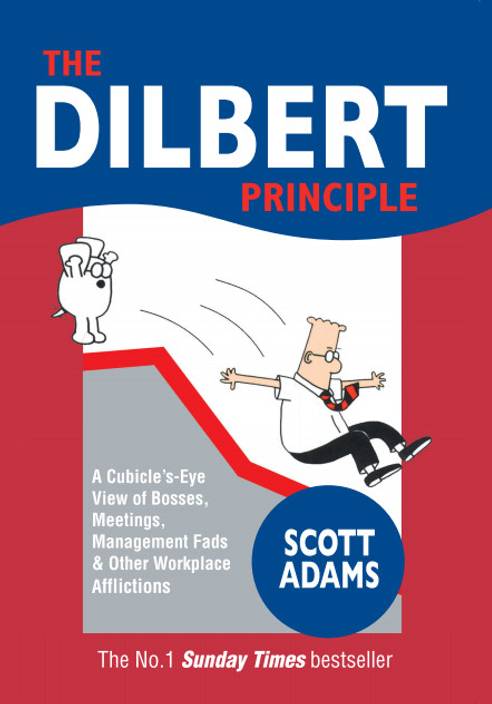
Posted December 22, 2017 in: # When candidate Trump first set about the job of redefining politics (and reality) back in 2015, people had lots of predictions about how things would turn out. One year isn’t long enough to know everything we need to know about his presidency, but it’s long enough to to check some of our predictions. As a public service, I put together a list of predictions that various people made about Trump that you can use to evaluate your own predictive powers. Count the number of items on the list that you once predicted would be true. I’ll tell you how to evaluate your score at the end. Posted December 13, 2017 Crime is the base problem for a number of poor urban areas. Wherever you have high crime, you have trouble attracting employers.
And without employment options, you end up with poverty, a low tax base to support schools, hopelessness, drug dealing, and the rest. So I thought I would share some ideas for reducing urban crime. The first idea comes from Black Lives Matters out of New York.
The Dilbert Principle: A Cubicle's-Eye View of Bosses. Management Fads and Other Workplace Afflictions (A Dilbert Book) by Adams.
I can’t judge this sort of idea from my suburban home in California, but I share it with you because it belongs in the conversation. There is a going on in part of Harlem that has drastically reduced violent gun crime. Police say the big difference is the number of illegal guns they took out of the neighborhoods in question, but they also credit a group called Street Corner Resources with “...
A mix of adult education courses, connections to legal and housing help and free job placement programs that would result in positions that could pay $40 to $50 a day more than selling drugs.” I think it’s always fair to be skeptical of success claims. But I like any plan that can be tested small and evaluated. This example fits that model perfectly. Ideally, we should have a dozen different programs running in different neighborhoods around the country to see which ones work best. I’d also like to see a system in which senior citizens within a dangerous neighborhood can watch security camera videos of all public spaces in their general area and report suspicious activity to police.
Perhaps they can be paid for this service. You’d need a system that piped the videos directly to residential TV sets or mobile devices and randomized the camera views so the criminals never know which residents are watching which blocks. That keeps the watchers safe. I would also expect more police and security drones coming into use to get closer looks at crime in progress, and to follow perps back to their hiding places.
Imagine a senior citizen viewing a crime on a security cam and alerting police who send up the closest drone from a secure rooftop nearby to get a better look. That should drive most crime indoors, at the very least. I’m sure there are lots of other ideas for reducing crime.
I’d like to see the government do a better job of shining a light on various local crime-fighting experiments so everyone knows the options and we can pick the winners as they are identified. Wouldn’t you like to see regular reports on the news about crime-fighting experiments that are working well? Update: Baltimore is using aerial surveillance to fight crime. Posted December 11, 2017 One of the big changes in our national consciousness, thanks to President Trump, is that many of us are starting to see politics in terms of “deals.” We are also thinking about a growing economy. Compare that approach to the Obama/Bernie/Clinton worldview that is more about wealth transfer in a world of scarcity. For my purposes today, you don’t need to decide which approach is better. I only make the claim that we are more focused on the Art of the Deal than at any time in American politics.
This is one of the many ways President Trump is in our heads. Posted November 6, 2017 in: #, # Readers who pre-ordered my new book,, already got a copy of the bonus chapter that I offered with the pre-order. Tricky Word Trucks Game Free on this page. Now that the book is out, I thought I would include it here for the rest of you. The context is that I’m a trained hypnotist and people often ask me about the topic, so I thought I would answer the most common questions about it. This chapter is in the book, but publishing it here makes it easier to share. For me, the biggest impact from learning hypnosis was recognizing that people are not rational creatures.
Free Ringtone Download Aashiqui 2 Instrumental. We’re creatures who act irrationally and then rationalize our choices after the fact, at least for any decision involving emotion. Once you embrace this concept, the world is far easier to understand. But there are a number of other practical benefits to adding this skill to your talent stack. I’ll tell you a few below. Posted October 27, 2017 in: #, #, #, # Today might be one of the biggest days of my life, and it will be impossible to explain why that is so unless you know at least a little bit about,,,, and the legal distinction between a Simple Agreement for Future Tokens (SAFT) and an. If those words look unfamiliar, one of the biggest technical revolutions the world has ever known is sneaking up on you.
The folks in Silicon Valley — who live about three years in the future compared to the rest of the country — can’t stop talking about this topic. The smartest people in the Valley tell me blockchain will change nearly everything, and already is. It’s like “the Internet” before anyone had heard of the Internet. That’s how big it is.